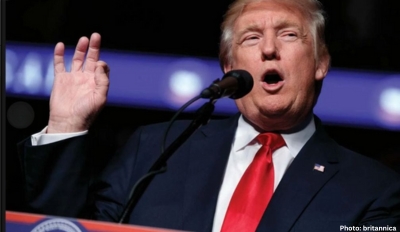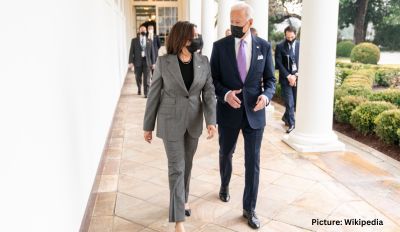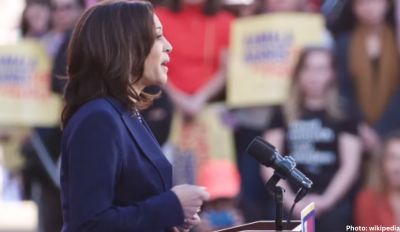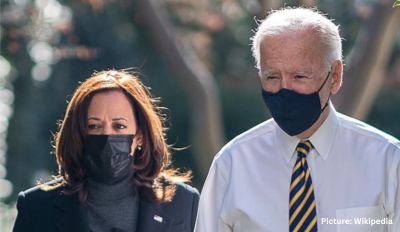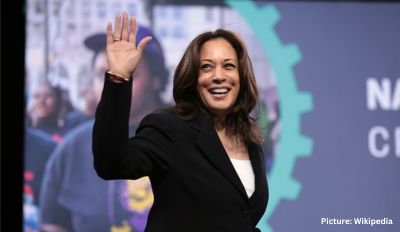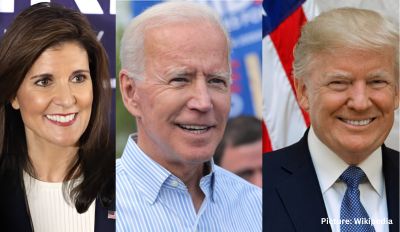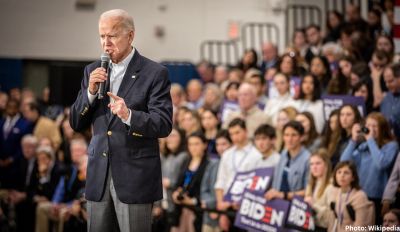After several months being in limbo, and constantly criticized for lack of action on crucial items on Biden’s election manifesto, Senate Democrats are aiming to pass a major spending bill
While the most comprehensive deal on Climate, Tax Reforms was the primary points of agreement in a deal by Sen. Joe Manchin (D-W.Va.) and Senate Majority Leader Chuck Schumer, the focus is on Sen. Kyrsten Sinema (D-AZ), who remains the biggest wildcard to passing a Democrat-only spending bill ahead of the midterm elections.
After several months being in limbo, and constantly criticized for lack of action on crucial items on Biden’s election manifesto, Senate Democrats are aiming to pass a major spending bill this week that includes funding for climate change, health care and tax increases on corporations.
Last week, Majority Leader Chuck Schumer announced a surprise deal with conservative West Virginia Democrat Joe Manchin on a 10-year, $739 billion domestic policy package that seeks to reduce U.S. carbon emissions by roughly 40% by the end of this decade. All eyes are now on Arizona Democratic Senator Kyrsten Sinema, who has yet to announce whether she’ll support the legislation.
Sinema’s vote could make or break the bill. Democrats, with no hope of winning Republican support, need every member of their caucus to be present and voting — not guaranteed given recent absences of senators infected with Covid — for it to clear the Senate.
“Kyrsten Sinema is a friend of mine, and we work very close together. She has a tremendous, tremendous input in this legislation,” Manchin said on NBC’s Meet the Press. “She basically insisted [on] no tax increases, [we’ve] done that. And she was very, very adamant about that, I agree with her.”
Manchin has stated that he will talk to fellow centrist Sen. Kyrsten Sinema (D-Ariz.) about supporting a broad tax reform and climate bill he’s negotiated with Senate Majority Leader Charles Schumer (D-N.Y.) that would reduce carbon emissions by 40 percent by 2030. Sinema has kept silent about whether she will support the deal, which needs the votes of all 50 members of the Senate Democratic caucus to pass.
The Arizona senator expressed opposition last year to closing the carried interest tax loophole for asset managers, something that Manchin insisted be part of the deal.
Manchin said last week that he was “adamant” about keeping a proposal to close the carried interest loophole, which lets money managers pay a capital gains tax rate on the income they earn from profitable investments. Sinema’s staff said the senator is reviewing the legislation.
“Rather than risking more inflation with trillions in new spending, this bill will cut the inflation taxes Americans are paying, lower the cost of health insurance and prescription drugs, and ensure our country invests in the energy security and climate change solutions we need to remain a global superpower through innovation rather than elimination,” Manchin said.
Manchin indicated that he would likely vote to protect the budget reconciliation package from amendments that would alter it significantly, arguing that he and Schumer have struck the right balance after months of difficult negotiations.
“I’m just saying, we have a good balanced piece of legislation. It’s taken me eight months to get here. We’ve listened to everybody along the way,” he said when asked whether he would vote for amendments to change the bill, which would raise $739 billion in new revenue and reduce the deficit by more than $300 billion.
An analysis by the Joint Committee on Taxation, for example, shows people earning between $50,000 and $75,000 would see their taxes increase by 0.8 percent in 2023.
Bloomberg reported that the bill would increase a lapsed tax on crude and imported petroleum products to 16.4 cents per barrel. “We have to agree to disagree. My Republican colleagues are my friends and I’ve worked with them tremendously and I’ll continue to work with them in any way, shape or form,” he said. “But these are things we have all talked about in bipartisan groups. How can we start paying down our debt and take our finances seriously?”
Details of the New Proposal
- The provisions would invest $369.75 billion in Energy Security and Climate Change programs over 10 years.
- Proponents said the package would cut about 40% of the country’s carbon emissions by 2030.
- Package would raise a total of $739 billion in revenue through programs including a 15% corporate minimum tax, prescription drug pricing reform and IRS tax enforcement. The bill would impose a 15% corporate minimum tax, while raising taxes on carried interest, and raising another $124 billion through IRS tax enforcement. Families making less than $400,000 per year would not be affected. Democrats say it would reduce the deficit by $300 billion.
- Besides climate spending, the bill will also spend $64 billion on extending the Affordable Care Act (ObamaCare) subsidies through the 2024 election and the first term of Biden’s presidency, taking a big political headache off the table for Democrats. Manchin said that “helps people because you just can’t throw [increases] on them during inflammatory times like this.”
- For the first time, Medicare would be empowered to negotiate drug prices, something Democrats say would raise $288 billion, and it would cap out-of-pocket costs at $2,000 for drugs.
- Manchin said the final deal does not leave out new incentives for electric vehicles, which he’d resisted in what became a major sticking point in the negotiations. Manchin said the bill gives incentives to make new car batteries in America “and not only be able to assemble them but be able to extract the minerals that we need, critical minerals, in North America.” The deal includes a methane fee as well as a $4,000 tax credit for the purchase of used electric vehicles. The bill also includes efforts to make fossil fuels cleaner, Manchin said, and to increase production to help American allies amid Russia’s invasion of Ukraine, which has limited European fuel supplies.


